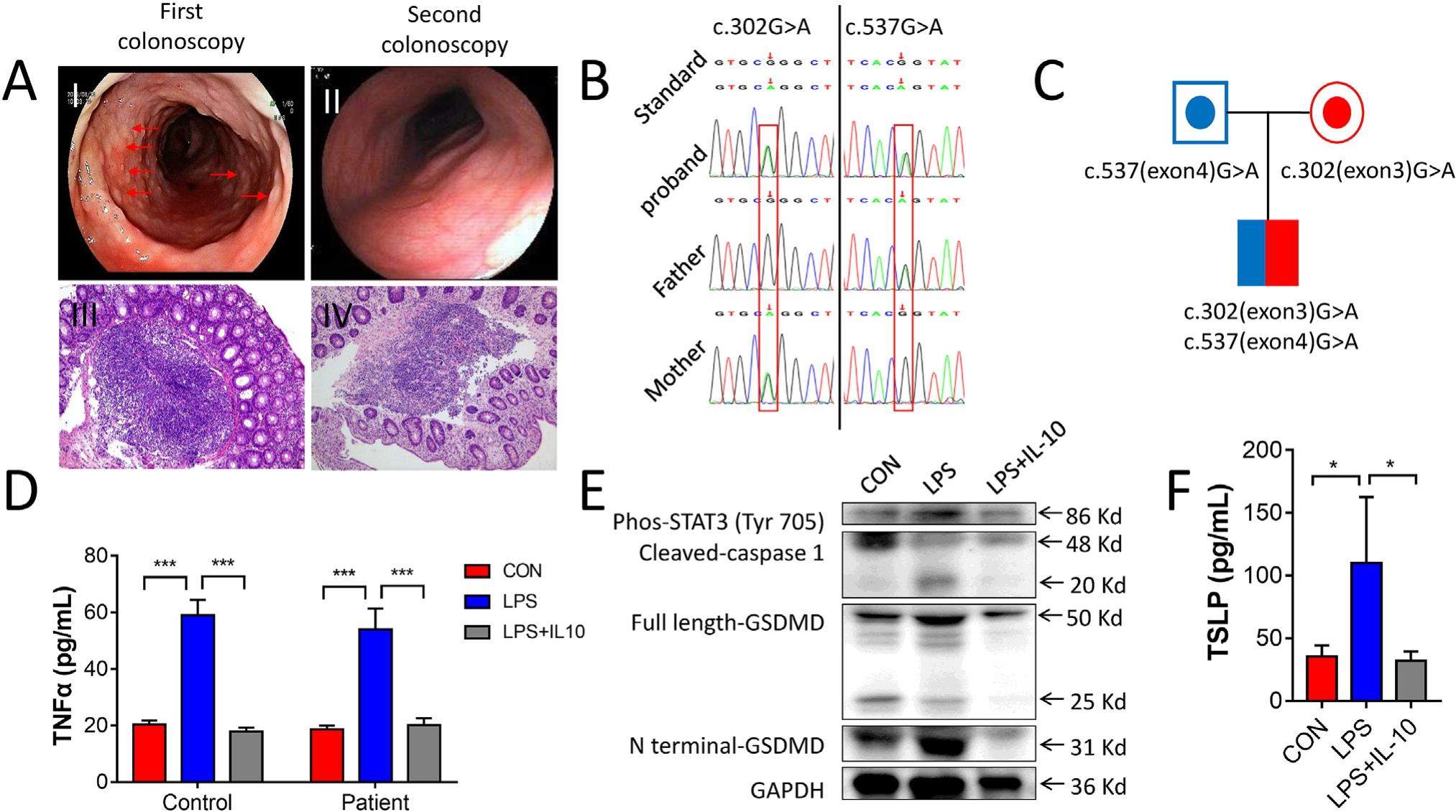
An interleukin 10 Receptor alpha (IL-10RA) variant with a compound heterozygote mutation shows normal IL-10 signaling activity


Loss-of-function mutations of interleukin 10 receptor alpha subunit (IL-10RA) (homozygotes or compound heterozygotes) are associated with pediatric colitis and diarrhea. These mutations always drive a significant increase in serum interleukin-10 (IL-10) levels, while such high levels of IL-10 fail to suppress intestinal inflammation, at least in part by failure to suppress the release of some cytokines such as interleukin 1 beta (IL-1β) and tumor necrosis factoralpha (TNFα). However, at present, whether a novel missense variant has a pathogenic effect is mainly determined according to the guidelines issued by the American College of Medical Genetics and Genomics (ACMG). Without functional verification, a variant of uncertain significance (VUS) will be easily made, or a variant will be misjudged as pathogenic or benign. Thus, a function test of a novel mutated IL-10RA is needed to determine whether colitis was attributed to such a mutation.
